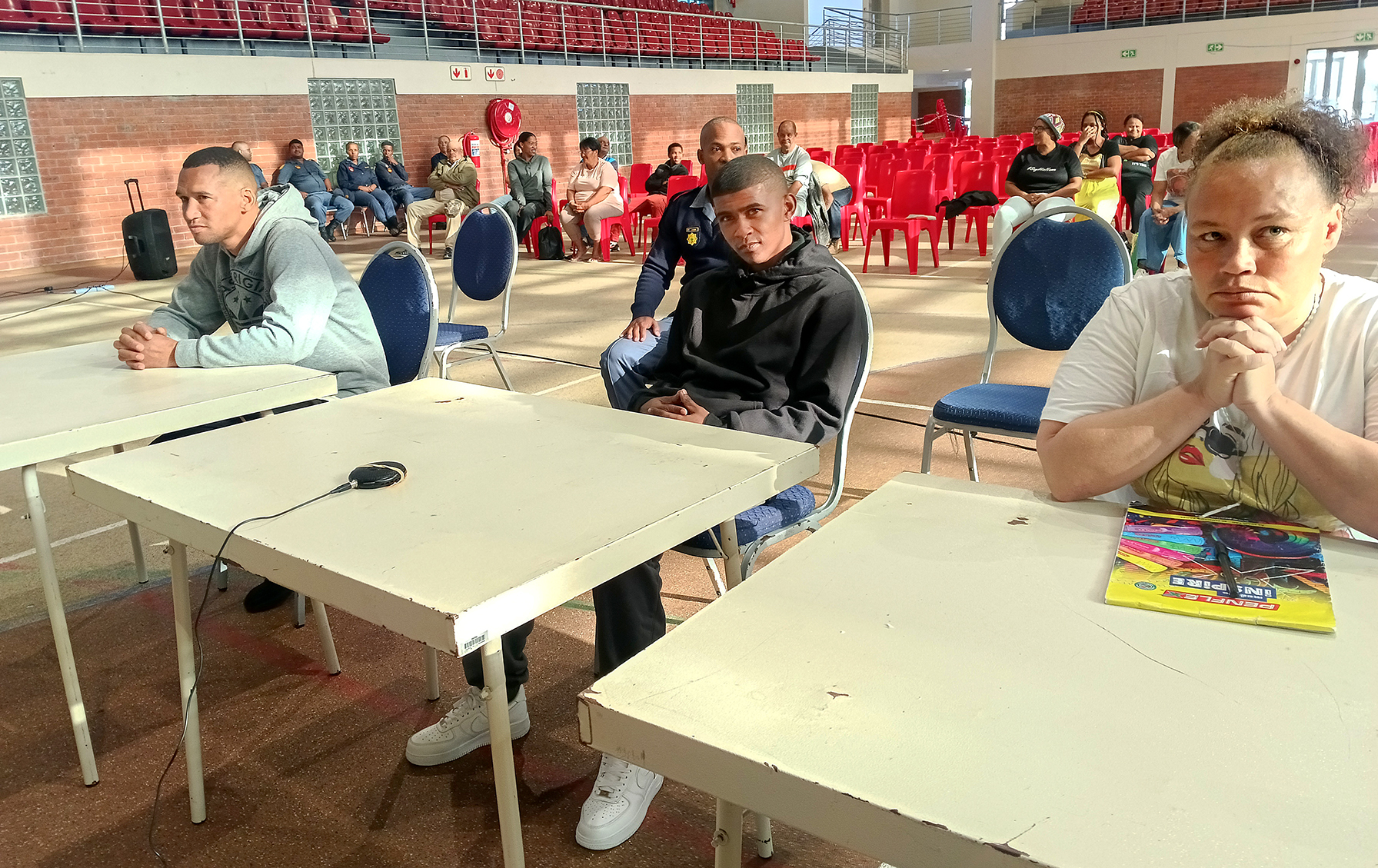Judge Nathan Erasmus has ruled that the confessions of two of the accused in the Joshlin Smith trial are admissible and can be used as evidence against them.
Jacquen Appollis and Steveno van Rhyn had claimed that their confessions were coerced through police torture and that the police had told them what to say.
On Thursday, 17 April, Judge Erasmus granted an interlocutory order ending the trial-within-a-trial in the Western Cape High Court sitting in the Multipurpose Centre in Saldanha Bay, following arguments by lawyers for Appollis, Van Rhyn and the prosecution.
However, Judge Erasmus said the admissibility was provisional and could be revisited at the end of the trial.
Appollis and Van Rhyn had claimed that they were tortured in the early hours of March 4, 2024, in the Saldanha Bay Sea Border Office. They said they were handcuffed, strung up with plastic bags placed over their heads and hit on the head, knees, feet and wrists; swung around, unable to breathe, and had to shake their heads or scream if they wanted to speak.
However, a doctor testified that Appollis and Van Rhyn had no apparent injuries indicative of torture.
Appollis took the stand on Friday, 11 April and admitted to lying about key details in his statement to police, including his assertion that he took Joshlin to a sangoma’s house.
Appollis, Van Rhyn and Joshlin’s mother, Racquel “Kelly” Smith, face charges of human trafficking and kidnapping following Joshlin’s disappearance on 19 February 2024 from the Middelpos informal settlement in Saldanha Bay. They have pleaded not guilty.
State witness Laurentia Lombaard has testified that Kelly sold Joshlin to a sangoma for R20,000.
Read more: Shocking testimony unveils Kelly Smith’s alleged plot to sell six-year-old daughter Joshlin to a sangoma
Appollis and Van Rhyn claimed that the police told them to include in their confession that “Kelly allegedly told them to take Joshlin to Makalima on 19 February 2024.”
The alleged sangoma, Phumza Sigaqa, known as Makalima, was arrested on 5 March 2024. She appeared alongside Appollis, Van Rhyn and Smith in the Vredenburg Magistrates’ Court on charges of kidnapping and human trafficking on 7 March 2024.
However, on 13 March 2024, prosecutor Aradhana Heeramun told the court that the charges against Sigaqa had been withdrawn due to a lack of evidence.
Credibility shredded
The court heard concluding arguments from advocates Fanie Harmse for Appollis and Nobahle Mkabayi for Van Rhyn, as well as the two prosecutors, advocates Zelda Swanepoel and Aradhana Heeramun, before issuing the order on the admissibility of the confessions.
Heeramun referred to a video-recorded confession by Van Rhyn in which he said he was going to receive R5,000 from Makalima for his role in Joshlin’s disappearance.
She pointed to the evidence of doctors Hendrik Nel and Tanya Zimri that the assault claims were highly improbable.
“The accused claim they were assaulted; there is no way either of those doctors would have failed to notice the extent of their injuries, as evidenced by the video footage of their statement,” she argued.
“The credibility of the two accused was shredded because what the court was told in their plea explanations changed… if what was said is the truth, there would be absolutely no reason why the evidence should change.”
Harmse argued that there was a reasonable possibility that Appollis was injured and assaulted, as evidenced by video footage of his confession, in which his eye was swollen.
Mkabayi maintained that Van Rhyn had been assaulted, threatened and intimidated by the police.
“Van Rhyn’s evidence should be ruled inadmissible,” she argued.
Judge Erasmus said it was customary not to provide reasons for the ruling on the admissibility of the statements because the ruling was interlocutory and may be reconsidered later in the trial.
“I thought it would be appropriate to just explain the process and where we are because of the public interest in the case, so that people understand what we are dealing with, what the ruling means, and to understand this is not the end of the case.”
The trial continues on Tuesday, 22 April. DM





